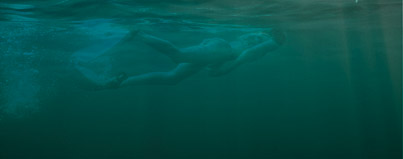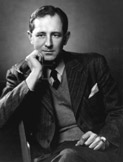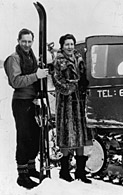Swimming in memory (Page 2)

The memoir is filled with similarly powerful moments, such as the youthful Coleman's first stab at confessing her attraction to the older man: she blurts out, "I sometimes wish you were my father." And then, the inevitable mortification: "I didn't wish he were my father at all. It was a stupid thing to say." Another episode, when a 15-year-old Coleman comes across MacLennan while swimming and they engage in a brief watery wrestling match, is mysteriously evocative.
"I sort of forgot about this incident," says Coleman, "so when I was writing, I thought, 'Well, that was a strange event, but what actually happened?' I can't call up any more than what's in the memoir." While some of the book's dialogue is made up -- it is 50 years later, after all -- the most striking and emotionally resonant exchanges and events are true to history, she insists.
Coleman attended McGill in the mid '50s, graduating with a degree in Arts in 1957. While she doesn't dwell on the McGill years in I'll Tell You a Secret -- most of the action of the memoir takes place in North Hatley -- they do come up on occasion. "I loved my first year at McGill University," she writes, "where for the first time I was one of a small group of people who were my intellectual peers: this was a revelation and I loved it." The cosmopolitan life of Montreal stimulated her imagination and courage, and the cafés drained her purse.

Author Hugh MacLennan in the 1950s.
McGill Rare Books and Special Collections
And the memoir contains one shocking student confession: "I adore exams," she writes. "I wonder how many people actually love them and don't dare say so, for fear of being too infuriating85." Indeed, her memoir describes several of them, including some of her fourth-year finals, which she wrote from a hospital bed after recovering from an appendectomy. Of a French exam, attended by her professor, she writes, "Every few minutes, mid-thought, I had to close my eyes and wince as gas pains moved agonizingly around deep inside me.
"I was completely submerged in this book when I was writing it," she says, "and really went back into my body, so that I felt I was those different ages. Sometimes the old emotion came back and I felt so sad. My questions about the relationship are out of my system for now, but that doesn't mean I've totally cracked it," she says. "Even when people are dead, the conversation goes on, and you see the relationships differently. It shifts, so you never get to know exactly what that other person was about -- or even what I was about," she says. "What does one's life mean? Does one ever know?"

MacLennan and his first wife, Dorothy Duncan.
While part of her preparation for the memoir involved rereading MacLennan's Two Solitudes -- "I just wanted to get back into the flavour of him" -- she avoided other external research. "I read Elspeth Cameron's biography of him when it came out but haven't since. I wanted to delve into who I had been and who he had been then, and not be influenced by anybody else's version."
The MacLennan who emerges is a shadowy, complex figure: a bookish man concerned with literary tradition but very competitive on the tennis court; married to a woman whose appeal Coleman cannot fathom, and capable, apparently, of falling in love with a young girl without actually realizing it; and stoical -- or perhaps repressed, or honourable -- to a fault. Coleman crossed paths with MacLennan a number of times after the end of her first marriage, but he had aged rapidly and they never rekindled their original intimacy. "He really became a sad figure," she recalls. "He was so handsome, but his face became puffy from booze and he minded dreadfully not being an athlete any more. That sort of thing meant a lot to him."


